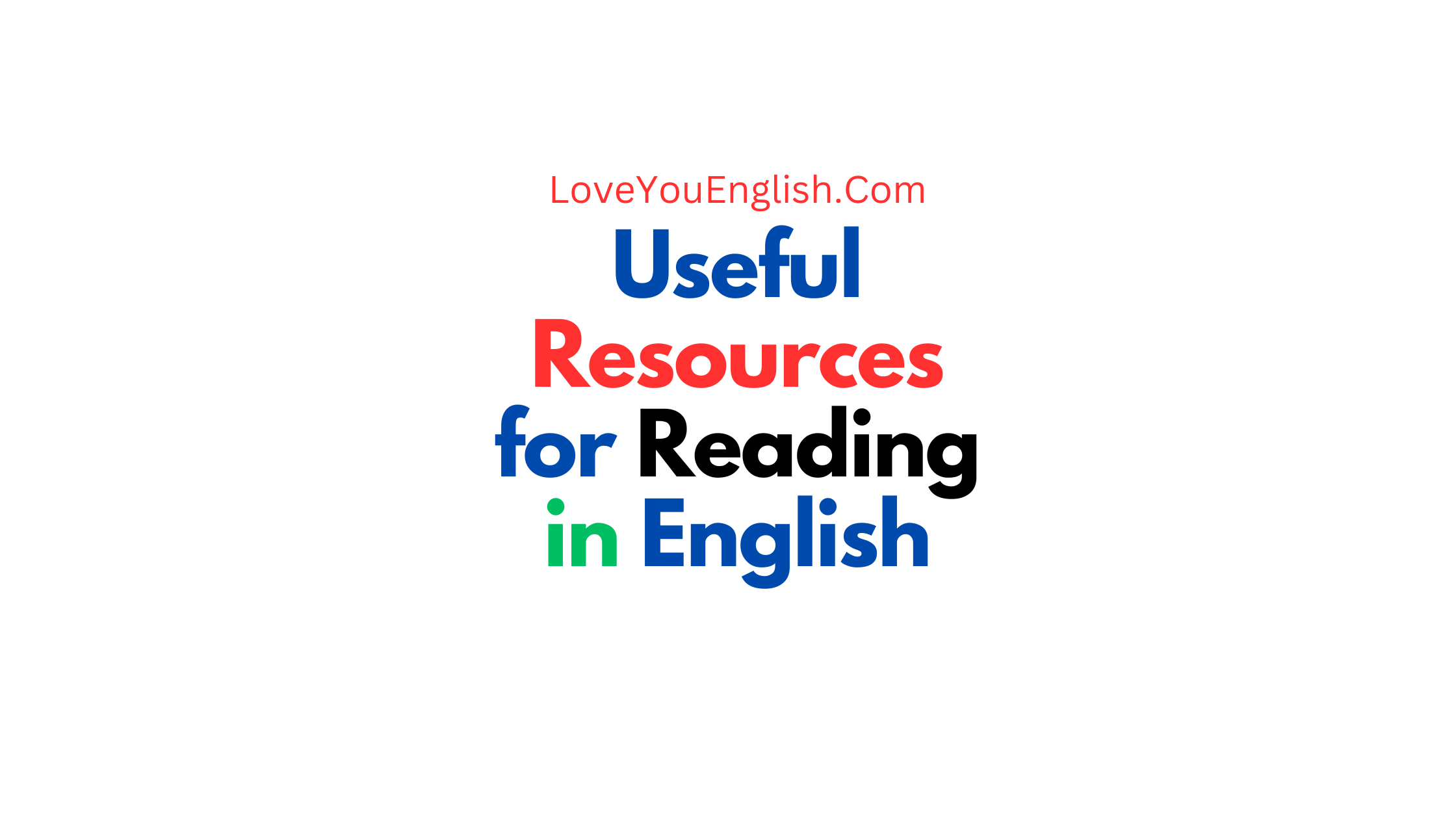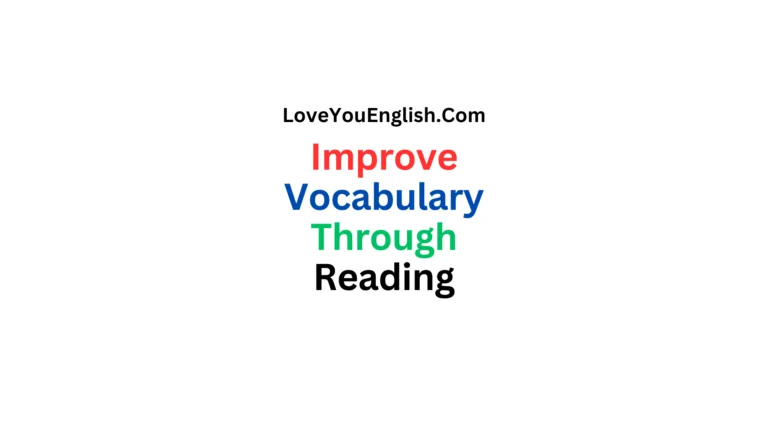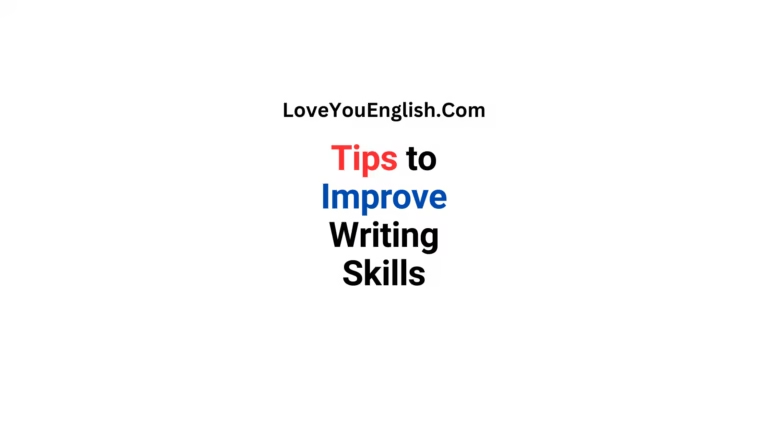Useful Resources for Reading in English
Useful Resources for Reading in English is a practical guide designed to help learners improve their reading skills in an enjoyable and effective way. Reading is one of the best ways to build vocabulary, understand sentence structure, and develop overall language fluency. However, many English learners struggle to find the right reading materials that match their level and interests. This topic introduces a variety of useful resources such as short stories, articles, online platforms, graded readers, blogs, and e-books that make reading easier and more engaging. Written in simple and clear English, it is ideal for students, ESL learners, teachers, and self-learners. Using the right reading resources helps learners stay motivated, read regularly, and gradually build confidence in understanding English texts across different topics and styles.
This topic is part of our English Learning for English learners.
Why Reading in English is Important
Before we dive into the resources, let’s talk about why reading in English matters:
Vocabulary Growth: Reading exposes you to many new words. The more you read, the more words you learn.
Better Grammar: Seeing how sentences are structured in books helps you understand English grammar rules.
Improved Writing Skills: Good readers often become good writers. Reading shows you how to express ideas clearly.
Cultural Understanding: Books, news articles, and blogs give you insights into English-speaking cultures.
Language Fluency: Regular reading makes English feel more natural to you over time.
Online Reading Tools
Graded Readers
Graded readers are books written specifically for English learners.
They use simple words and grammar that match different learning levels (beginner, intermediate, advanced).
This way, you can find books that are just right for you—not too easy, not too hard.
Some top graded reader resources:
Oxford Bookworms Library: Offers over 270 graded readers at seven levels.
Penguin Readers: Known for adapting classic and modern stories for learners.
Cambridge English Readers: Provides original stories across six levels.
News Websites with Simple English
News can be hard to read because it often uses complex language.
But some websites offer news in simple English:
News in Levels: Presents each story at three difficulty levels.
Simple English Wikipedia: Like regular Wikipedia, but with easier words and grammar.
Breaking News English: Offers news articles with many learning activities.
Online Dictionaries and Translation Tools
When you read, you’ll often find words you don’t know. These tools help you understand them quickly:
Cambridge Dictionary: Gives clear definitions and shows how words are used.
Merriam-Webster Learner’s Dictionary: Designed for non-native English speakers.
Google Translate: Translates words or whole texts into your language.
Linguee: Shows translations in context from real websites.
Text-to-Speech Tools
Hearing a word can help you understand and remember it better. Text-to-speech tools read text out loud for you:
Natural Reader: A user-friendly tool that sounds very human-like.
Google Text-to-Speech: Built into many Google products.
Balabolka: A free software you can download to your computer.
Vocabulary Builders
These websites focus on teaching you new words:
Vocabulary.com: Learns which words you know and teaches you ones you don’t.
Memrise: Uses fun games to teach words in context.
Quizlet: Offers flashcards and quizzes for many word lists.
Reading Comprehension Websites
These sites have articles with questions to check if you understood what you read:
ReadWorks: Offers a wide range of texts with comprehension questions.
NewsELA: Lets you adjust the reading level of news articles.
ESL Reading Smart: Designed for English learners with instant feedback.
E-Book Platforms
E-books are digital books you can read on a computer, tablet, or e-reader.
Many e-book platforms have features that help language learners.
Amazon Kindle:
Kindle is Amazon’s popular e-book service. It has some great features for English learners:
Word Wise: Shows simple definitions above hard words.
X-Ray: Gives more info about characters, places, or themes in a book.
Dictionary: Tap a word to see its meaning.
Enormous Selection: Over six million books to choose from.
Project Gutenberg
Project Gutenberg offers over 60,000 free e-books.
Many are classic books whose copyright has expired.
This means you can read famous works like “Pride and Prejudice” or “The Adventures of Tom Sawyer” without paying.
The site is simple, making it easy to find and download books.
International Children’s Digital Library (ICDL)
Don’t let the name fool you—this site isn’t just for kids.
ICDL has thousands of children’s books from around the world. Many are in simple English, making them perfect for adult learners too.
You can find beautiful picture books that help you understand the story even if you don’t know all the words.
Libby
Libby is an app that lets you borrow e-books from your local library. Just sign up with your library card.
You can then download books to your device.
This is a free way to access many English books. Libby also has audiobooks, which are great for hearing how words are pronounced.
Language Learning Apps with Reading Features
Some language apps are known for teaching grammar or conversation. But many also have great reading tools.
LingQ
LingQ focuses on learning through reading.
Here’s how it works:
Choose from many articles, stories, and books.
Unknown words are highlighted.
Click a word to see its meaning and save it.
Review saved words later with flashcards.
Track how many words you know.
Duolingo
Duolingo is famous for its bite-sized language lessons.
But it also has a feature called Duolingo Stories. These are short, fun stories that teach English through context.
Each story has questions to check your understanding. The app tracks which grammar and words you’re learning in the stories.
Beelinguapp
This unique app shows text in English and your native language side by side.
You can:
Read along in both languages.
Listen to audio of the text.
Highlight phrases to compare translations.
Choose from children’s stories, news, science articles, and more.
FluentU
FluentU turns real-world videos into language lessons.
Many videos have captions.
As you read along:
Click words for definitions.
See grammar explanations.
Add words to your vocabulary list.
Take quizzes based on the video’s language.
While it’s video-based, the reading component is strong. You’re reading authentic English as it’s spoken.
Online Book Communities
Talking about books with others can boost your reading skills.
You learn how people discuss stories in English.
Plus, it’s motivating to share your thoughts.
Here are some friendly online book communities:
Goodreads
Goodreads is like a social network for book lovers.
You can:
Get book recommendations based on what you like.
See reviews to find the right book for your level.
Join groups for English learners or for fans of specific genres.
Take part in reading challenges to stay motivated.
Write your own reviews to practice English.
Reddit‘s r/booksuggestions and r/esl
Reddit is a huge discussion website. It has areas (called “subreddits”) for every topic.
Two great ones for you:
r/booksuggestions: Ask for books that match your interests and level. People are very helpful.
r/esl: A community for English as a Second Language learners. Many posts are about reading resources.
Language Exchange Apps
Apps like Tandem, HelloTalk, and italki aren’t just for speaking practice. Many users enjoy discussing books.
You can:
Find a language partner who likes similar books.
Talk about a book you’re both reading.
Help each other with tricky parts.
Learn English book-related phrases.
Reading Material Websites
Now that we’ve covered tools, let’s look at websites full of things to read.
Medium
Medium is a platform where anyone can publish articles.
This means there’s a vast range of topics:
Personal stories
Opinion pieces
Educational articles
Writing advice (great for English learners!)
Many articles on Medium are easy to read because they’re conversational in style. You can also clap (like) for posts you enjoy, encouraging writers.
BuzzFeed
BuzzFeed is known for its fun, easy-to-read content:
Lists (like “10 Amazing Places to Visit”)
Quizzes
Pop culture news
Personal essays
The style is very casual, using slang and idioms. This helps you learn how English is really used online.
National Geographic Kids
Like ICDL, this site isn’t only for children. National Geographic Kids has fascinating articles about animals, nature, and science.
They’re written simply but aren’t childish.
You’ll learn many animal and nature words.
The stunning photos also help you understand the text.
ESL Lounge
ESL Lounge has a section dedicated to reading.
Texts are grouped by level:
Elementary
Pre-Intermediate
Intermediate
Upper-Intermediate
Each text comes with comprehension questions and sometimes grammar exercises. Topics range from daily life to world issues.
Classic Short Stories
This website does what its name suggests—it provides classic short stories.
Short stories are great because:
You can finish them quickly, feeling a sense of achievement.
They often use simpler language than novels.
Many are famous, so you’re reading “real” English literature.
Some good ones to start with: “The Gift of the Magi” by O. Henry or “The Yellow Wallpaper” by Charlotte Perkins Gilman.
Tips for Effective English Reading
Now you have many resources, here are some tips to help you read effectively:
Read What You Love: If you like science fiction, read that. Interested in cooking? Find recipes. When you enjoy the topic, you’ll want to keep reading.
Use a Dictionary, But Not Always: Try to guess a word’s meaning from context. If you still can’t, then use a dictionary. This builds your guessing skills.
Read Out Loud: This helps with pronunciation and makes the text more memorable.
Set Goals: Maybe “one news article a day” or “one book a month.” Goals keep you on track.
Reread Good Books: As you improve, return to books you liked. You’ll be amazed at how much more you understand.
Join a Challenge: Many sites have reading challenges (like “Read 20 Books in 2024” on Goodreads). Challenges make reading fun and social.
Mix It Up: Read news one day, a short story the next, then some Reddit posts. Variety keeps things interesting.
Don’t Fear Hard Books: It’s okay to try books above your level. You’ll still learn, even if you don’t get everything.
Write Summaries: After reading, write a few sentences about what happened. This checks your understanding.
Be Patient: Reading skills grow slowly. Some days you’ll feel stuck. That’s normal. Keep going, and you will improve.
Final thoughts
Reading in English opens up a world of stories, ideas, and information.
With the resources in this post, you have everything you need to start or continue your reading journey.
From graded readers to news sites, from e-books to language apps, there’s something for every level and interest.
Remember, every page you read makes you a bit better at English.
Some days will be challenging, but many will be full of new words, clear sentences, and enjoyable tales.
So, pick a resource that excites you and start reading today. A whole universe of English is waiting for you to explore!
You may also like these English learning articles:
- 40 Phrasal Verbs With “Away”
- 30 Phrasal Verbs for Health and Fitness
- 40 Phrasal Verbs with “In” and “Out”
- Phrasal Verbs for Sports and Fitness Activities
- 30 Phrasal Verbs with “ON” and “OFF”






